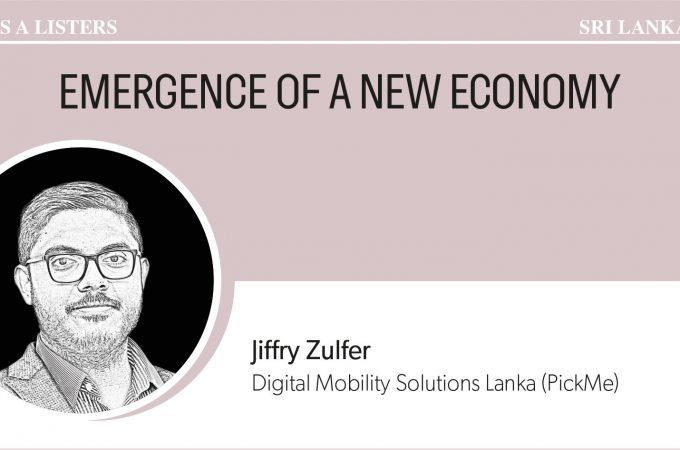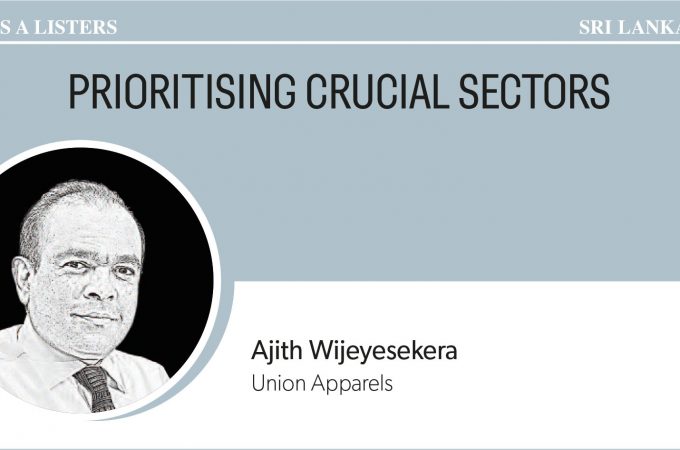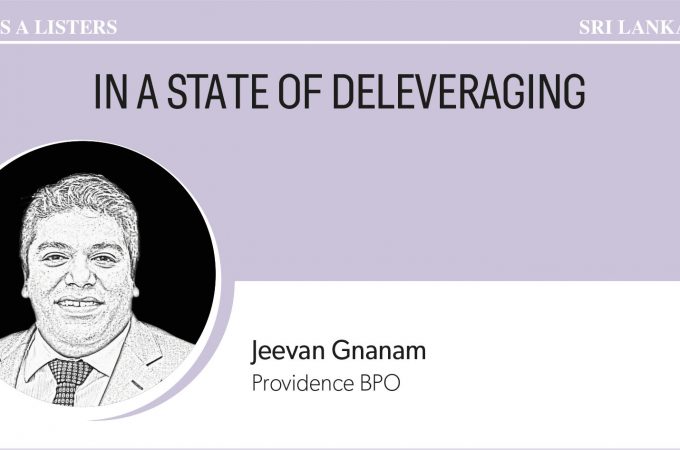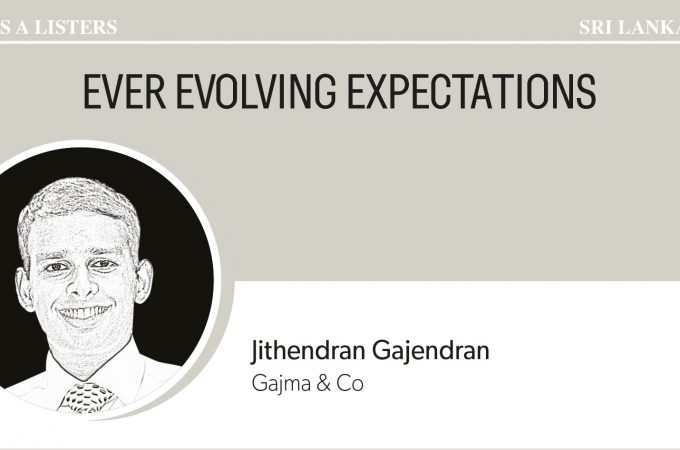PUBLIC HEALTH IS A PRIORITY
Q: In your view, how should the authorities balance the twin imperatives of safety and the economy?
A: The COVID-19 pandemic has put us in a situation where we have to either prioritise public health and in turn sacrifice economic output, or prioritise the economy and sacrifice public health. Although this is unprecedented, public health should always be prioritised over the economy.
We know how to revive economies but have no way of bringing people back to life. As a result, sacrificing health during a pandemic like COVID-19 will lead to an irreversible long-term decline in public health that will inevitably cause a recession on the supply side, with a subsequent decrease in output and higher inflation.
Furthermore, prioritizing public health during the pandemic will ensure that the economy is ready to bounce back when testing is increased and the pandemic is suppressed.
For example, the US suffered an 18 percent drop in manufacturing during the 1918 Flu, which represents a rather significant recession. However, states that prioritised health sooner and implemented strict social distancing measures bounced back with higher long-run economic growth than the others.
However, the Sri Lankan government has performed commendably by operating efficiently and transparently to prevent unrest.
That being said, the informal or gig economy is significant in Sri Lanka. Most SMEs and daily wage earners cannot weather this shutdown for an extended period. This is where the government needs to intervene with monetary and fiscal policies, which will ensure these segments remain intact when we’re ready to reopen.
Q: What is the outlook for jobs and employment in the medium term? And how should the authorities address the prospect of rising unemployment?
A: The lockdowns have necessitated work from home (WFH) protocols. This sudden shift, along with the risks posed by COVID-19 until a vaccine or cure is developed, may increase the prevalence of WFH jobs in the medium term.
Although working from home is ideal, unfortunately only a wealthy white-collar minority have access to WFH. Despite recent innovations in high-speed connectivity and communications technology, only around 30 percent of the labour force in developed countries can work from home, and this number is bound to be smaller in a developing economy like Sri Lanka.
Similarly, while many jobs are not suited for WFH, decreased consumer, business and investor confidence as a result of the lockdown will likely lead to higher levels of unemployment in the medium term. This will lead to more inequality and friction, which will slow down our post-crisis recovery because businesses will have to go through unproductive rehiring processes thereafter.
Although expansionary fiscal and monetary policies in the form of government spending, tax cuts or lower interest rates might help curb a traditional recession, these policies will be ineffective at a time when people need to stay at home.
Therefore, the best policy will be to help maintain relationships between employers and employees. Income contingent loans and tax deductibles for businesses are examples of policies that will ease the pressure on business, and in turn minimise unemployment by enabling the relationship between businesses and their employees to continue.
Q: How do you see the ‘new normal’ for business panning out?
A: This crisis has made connectivity a way of life. COVID-19 has reshaped and repositioned how consumers and businesses function, and the impact of this crisis will likely be felt for a long time. The rise of the digital customer has made the use of digital platforms and a strong online presence critical to the survival of any business. To succeed, businesses should initiate a transformation of their business models and operations, to leverage the full potential of digital platforms and their capabilities.
Enterprises need to constantly reinvent their offerings to keep pace with rapidly evolving customer expectations; they must evolve from products and services to experiences, and go from ownership to access and focus on hyper-personalisation. This can be achieved by driving digital transformation to every dimension of an organisation.
ABOUT LMD’S A LISTERS
BOOST TO REAL ESTATE INVESTMENT
 Q: What are your expectations of the business environment in the next 12 months or so? A: With the reduction in interest rates and increase in money circulation, people have a greater tendency to invest in real estate over the money market amidst the pandemic. We have seen similar patterns even in developed markets such…
Q: What are your expectations of the business environment in the next 12 months or so? A: With the reduction in interest rates and increase in money circulation, people have a greater tendency to invest in real estate over the money market amidst the pandemic. We have seen similar patterns even in developed markets such…
EMERGENCE OF A NEW ECONOMY
 Q: How did the pandemic necessitate a digital economy? A: Countries were not prepared for the COVID-19 pandemic’s impact on the economy and people, but it has resulted in the emergence of a new economy and way of life. It is technology, and the spirit of humans to survive and push past boundaries that have…
Q: How did the pandemic necessitate a digital economy? A: Countries were not prepared for the COVID-19 pandemic’s impact on the economy and people, but it has resulted in the emergence of a new economy and way of life. It is technology, and the spirit of humans to survive and push past boundaries that have…
PRIORITISING CRUCIAL SECTORS
 Q: What are your expectations of the business environment in the next 12 months or so? A: I believe that business is not likely to pick up until at least mid-next year for the hospitality sector. Business was nonexistent and as a measure to prevent exorbitant losses, we converted our hotel into a quarantine centre…
Q: What are your expectations of the business environment in the next 12 months or so? A: I believe that business is not likely to pick up until at least mid-next year for the hospitality sector. Business was nonexistent and as a measure to prevent exorbitant losses, we converted our hotel into a quarantine centre…
A POSITIVE AND FLEXIBLE PATHWAY
RELIABLE PARTNERS IN A CRISIS
 Q: In brief, what are the main challenges confronting corporates at this time? A: I think corporates today are besieged with a plethora of problems caused by the prevailing situation. First and foremost is the challenge in keeping their workers safe from COVID-19, and flowing from that is the inability to keep production cycles running…
Q: In brief, what are the main challenges confronting corporates at this time? A: I think corporates today are besieged with a plethora of problems caused by the prevailing situation. First and foremost is the challenge in keeping their workers safe from COVID-19, and flowing from that is the inability to keep production cycles running…
IN A STATE OF DELEVERAGING
 Q: How do you perceive the economic climate at present? A: I would like to really think about the state that the country’s economy is in. Our debt repayments are much higher than our income and this puts Sri Lanka in a state of deleveraging. This recently manifested itself in a 14.2 percent increase in…
Q: How do you perceive the economic climate at present? A: I would like to really think about the state that the country’s economy is in. Our debt repayments are much higher than our income and this puts Sri Lanka in a state of deleveraging. This recently manifested itself in a 14.2 percent increase in…
EVER EVOLVING EXPECTATIONS
 Q: What modern-day challenges do businesses face? A: Information overload – in the new world we live in, there’s never a lack of information. About 2.5 quintillion data bytes are added every day; more data is created in a single day than the combined amount generated over 99 percent of human history. Previous generations of…
Q: What modern-day challenges do businesses face? A: Information overload – in the new world we live in, there’s never a lack of information. About 2.5 quintillion data bytes are added every day; more data is created in a single day than the combined amount generated over 99 percent of human history. Previous generations of…
EXPANDING CREDIT FACILITIES
 Q: What is the bank’s corporate strategy for 2021/22? A: DFCC Bank’s 2021/22 plan is based on our five year strategy for 2020-2025 with the aim of making it one of the most customer centric and digitally enabled banks by 2025. Our lending plans will align with the government’s budget proposals to facilitate the growth…
Q: What is the bank’s corporate strategy for 2021/22? A: DFCC Bank’s 2021/22 plan is based on our five year strategy for 2020-2025 with the aim of making it one of the most customer centric and digitally enabled banks by 2025. Our lending plans will align with the government’s budget proposals to facilitate the growth…
REMAINING IN THE SPOTLIGHT
 Q: What are Sri Lanka Tourism Development Authority’s (SLTDA) priorities for 2021/22? A: The global tourism industry will continue to experience a huge shift in the way of doing business. Our innovative bio-bubble concept launch in January was recognised at ITB Berlin. We hope this will boost traveller confidence. Therapeutic destinations and experiential travelling are…
Q: What are Sri Lanka Tourism Development Authority’s (SLTDA) priorities for 2021/22? A: The global tourism industry will continue to experience a huge shift in the way of doing business. Our innovative bio-bubble concept launch in January was recognised at ITB Berlin. We hope this will boost traveller confidence. Therapeutic destinations and experiential travelling are…






